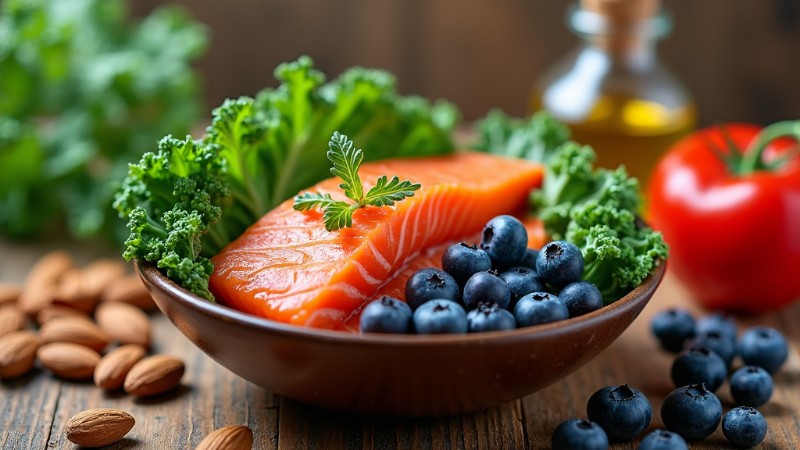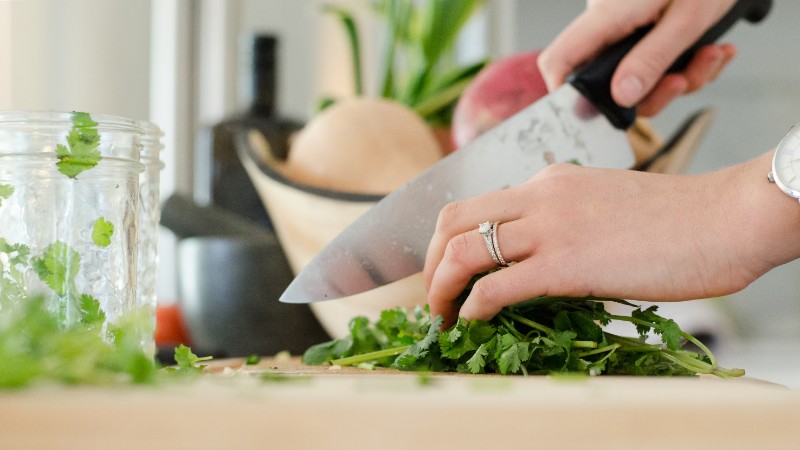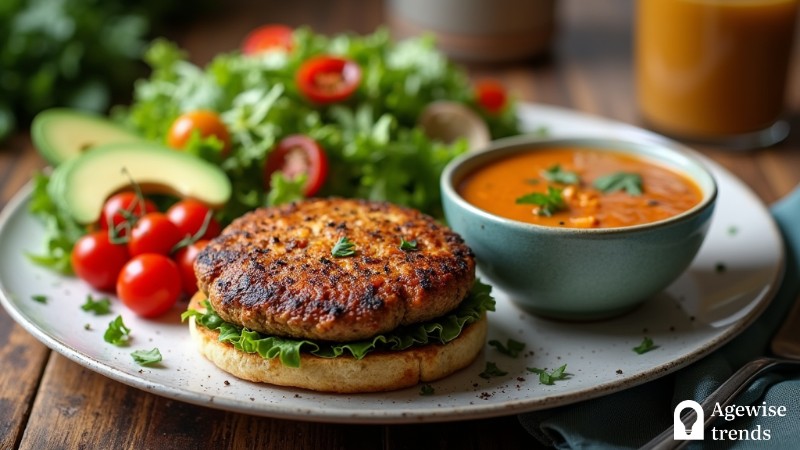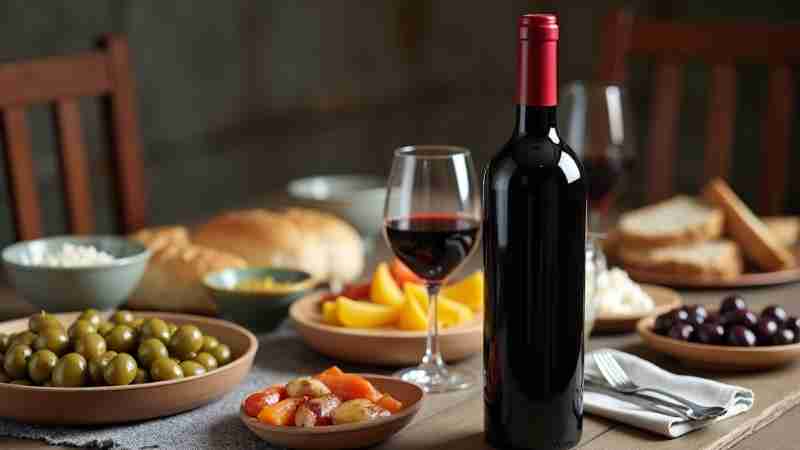Heart disease is a major cause of death around the world, but making smart food choices can lower your risk of heart issues like clogged arteries, high blood pressure, and high cholesterol. By knowing which nutrients help your heart and adding them to your meals, you can build a strong base for good health.
Eating well for heart health is not just about cutting out bad foods; it’s about adding foods that help your heart. Making small changes to what you eat, along with planning meals and cooking safely, helps seniors stay healthy and enjoy life.
In this guide, we’ll focus on three main areas for seniors: important nutrients for the heart, easy meal planning tips, and kitchen safety practices to live independently.
Key Takeaways
Making smart food choices can lower your risk of heart issues like clogged arteries, high blood pressure, and high cholesterol by adding heart-healthy nutrients to your meals.
- Focus on key nutrients for heart health such as Omega-3 fatty acids, Vitamin K2, antioxidants, and healthy fats found in foods like fish, sauerkraut, citrus fruits, whole grains, and nuts.
- Plan balanced meals with a mix of vegetables, lean proteins, and whole grains to get consistent, balanced nutrition.
- Practice kitchen safety by organizing the kitchen for accessibility, investing in user-friendly tools, and taking precautions against fire and heat to stay independent.
Key nutrients for heart health and food choices
Heart-healthy nutrients help protect you from heart disease by reducing inflammation and improving cholesterol levels. These are the key nutrients seniors should focus on, plus foods that are full of these nutrients and easy to find.
Omega-3 Fatty Acids: Omega-3 fatty acids help lower inflammation and triglycerides, which can decrease irregular heartbeats and reduce blood pressure. Health experts recommend eating fish like salmon, tuna, and sardines twice a week for their Omega-3s. These fatty acids also help protect your arteries. If you’re looking for plant-based choices, try adding flaxseeds, chia seeds, walnuts, or tofu to your meals.
Vitamin K2: Vitamin K2 is an important nutrient that helps manage calcium in your body. It keeps your arteries flexible by moving calcium away from arteries and into your bones, where it belongs. Foods like sauerkraut, hard cheeses, and egg yolks have K2 and are easy to add to your meals. Research shows that seniors can really benefit from eating more K2. It helps keep calcium balanced, reduces hardening of the arteries, and lowers heart disease risks.
Antioxidants and Fiber-Rich Foods: Antioxidants in colorful fruits and vegetables help fight damage and plaque buildup in your arteries. These nutrients, like vitamins C and E, help keep your blood vessels flexible and lower the oxidation of LDL cholesterol, which can lead to artery plaque.
Great sources of antioxidants include citrus fruits such as oranges, berries, and leafy greens. Foods high in fiber, like whole grains, beans, and legumes, also help by lowering cholesterol. For example, black beans have fiber and magnesium, which help reduce blood pressure, and oats contain soluble fiber that helps lower cholesterol in your bloodstream.
Healthy Fats and Monounsaturated Oils: Olive oil, avocados, and nuts like almonds and walnuts are good for your heart. They have monounsaturated fats that can lower bad cholesterol and reduce inflammation in your arteries, helping to stop plaque buildup. The American Heart Association suggests using olive oil instead of butter to cut down on saturated fat, which can raise cholesterol. A small handful of nuts as a snack or on a salad can give you healthy fats and omega-3s, plus a nice crunch to your meals.
Dark Chocolate: Dark chocolate can be good for your heart when eaten in moderation. It has antioxidants called flavonoids that can help lower blood pressure, improve blood flow, and protect your blood vessels. Choosing chocolate with at least 70% cocoa gives you these benefits without too much sugar. It’s a heart-friendly way to enjoy a sweet treat.
Meal planning tips
Meal planning is an important way to get consistent, balanced nutrition. This is especially true for seniors who might have physical challenges or special dietary needs. Planning healthy recipes carefully makes grocery shopping easier and helps avoid last-minute unhealthy food choices. Here are some simple tips to make meal planning easy and fun for seniors.
Balance and Variety in Meals: Making a balanced meal is about mixing different vegetables, lean proteins, and whole grains. Try combining grilled salmon with a green salad. Use olive oil and walnuts for extra flavor and nutrients. Add colorful veggies like bell peppers, spinach, and arugula. These veggies make the meal healthier. Arugula is full of fiber, potassium, and antioxidants, which are great for your body, and it works well in salads or as a topping.
Emphasis on Simple and Accessible Ingredients: For many seniors, managing complicated recipes or ingredients can be overwhelming. Focusing on simple, whole foods can make a big difference. Use staples like pre-cooked brown rice, canned beans, and pre-cut vegetables to make meal prep faster and easier. Choosing minimally processed foods helps keep the nutrients while cutting down on added sugars, salts, and fats. For example, add canned chickpeas to a salad or use frozen vegetables in a stir-fry for a healthy boost with little effort.
Smart Snacking for Extra Nutrients: Snacking can help keep your energy up all day, but it’s important to choose snacks that are good for your heart. Try options like low-fat yogurt, an apple with some almonds, or carrot sticks with hummus. These snacks give you heart-healthy nutrients without too many calories or bad fats. Low-fat dairy gives you calcium and protein, while apples and carrots provide fiber and natural sweetness. If you want a treat, dark chocolate (with at least 70% cocoa) is good for your heart because it has antioxidants.
Hydration Awareness: Staying hydrated is important for seniors but often forgotten. Drinking enough water helps your heart and improves circulation. It eases the work on your heart. Try adding lemon, cucumber, or mint to your water for taste. You can also eat foods with lots of water like cucumbers, watermelon, and oranges. They also offer important vitamins.
Kitchen safety for seniors
Keeping the kitchen safe is important for seniors who may have less mobility or strength. Using safe habits can make cooking easier and help seniors stay independent.
Organize the Kitchen for Accessibility: Keep often-used items within easy reach to avoid stretching or climbing, which can cause accidents. Place spices, utensils, and everyday pots and pans on lower shelves to make them easier to grab. Clear labels on jars or containers help seniors find ingredients quickly, making cooking easier and safer.
Invest in User-Friendly Tools: Using easy-to-handle kitchen tools can make cooking safer for seniors. Tools like non-slip mats, comfortable knives, and lightweight pots help prevent slips and injuries. Electric can openers and jar openers make opening food containers simpler, making cooking easier.
Safety Precautions for Fire and Heat: Simple habits can prevent kitchen accidents from heat and fire. Turn off the stove after use, keep pot handles turned inward, and avoid loose clothing that might catch fire. Appliances with automatic shut-off are helpful too. For seniors with limited mobility, using flame-resistant oven mitts and kitchen towels can prevent burns when handling hot items.
Focus on Cleanliness and Reducing Slip Hazards: Keeping your kitchen clean and dry is crucial. Spills and clutter can cause falls or accidents. Regularly wipe down counters, sweep floors, and clean up any spills immediately to prevent slipping. A non-slip rug in front of the sink or stove can also help prevent slips when you’re standing for a while.
Conclusion
For seniors, keeping your heart healthy isn’t just about dieting; it’s about combining good nutrition, smart meal planning, and safe cooking. Focus on heart-healthy nutrients like Omega-3s, Vitamin K2, antioxidants, and healthy fats.
Planning meals that are balanced and full of nutrients, while staying safe in the kitchen, makes eating for your heart enjoyable and easy to maintain. This helps you live well and stay independent longer.















